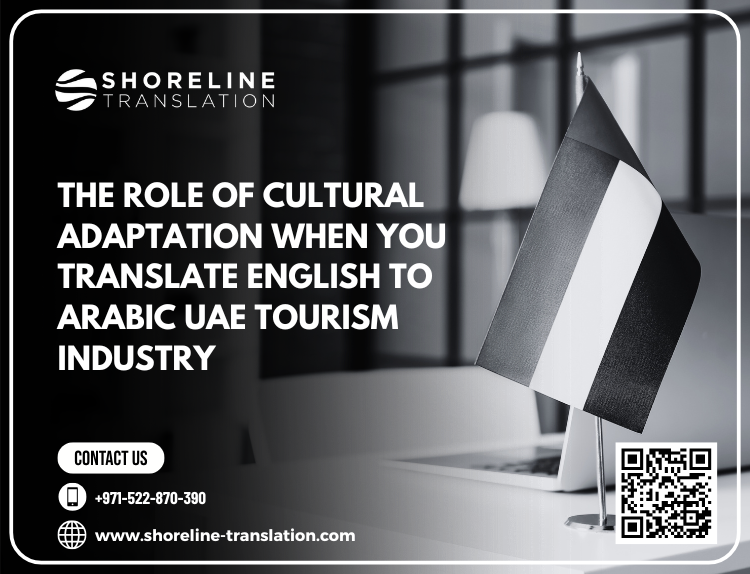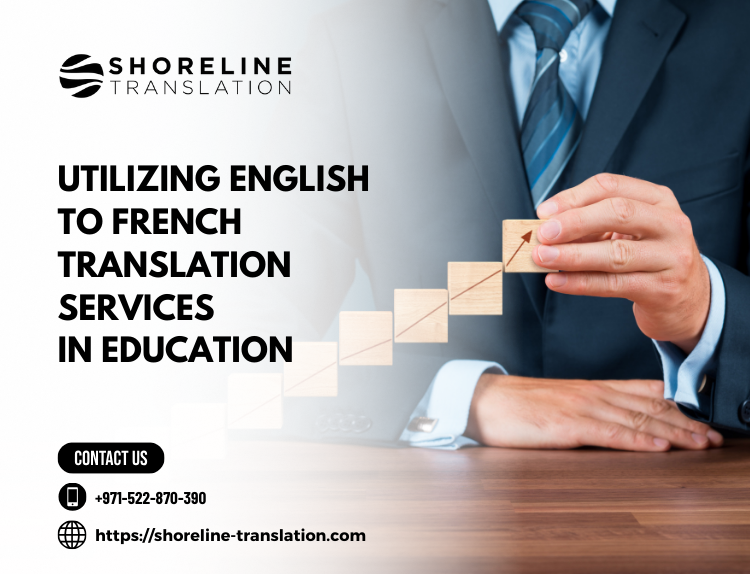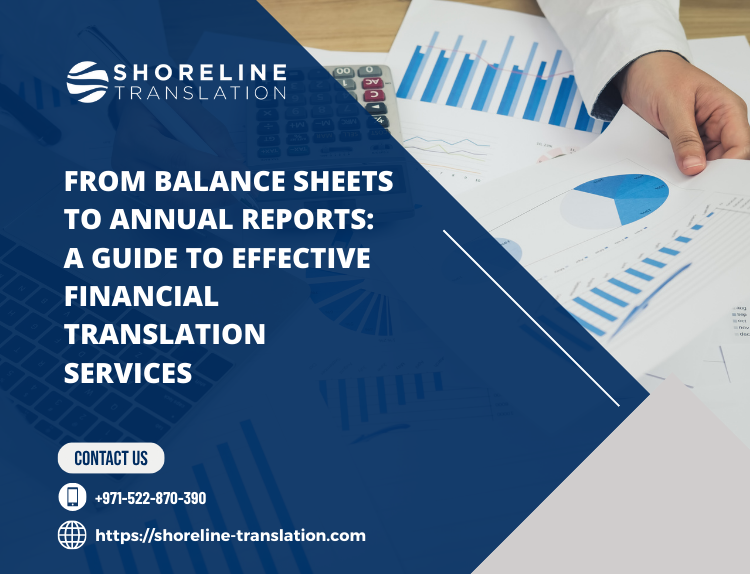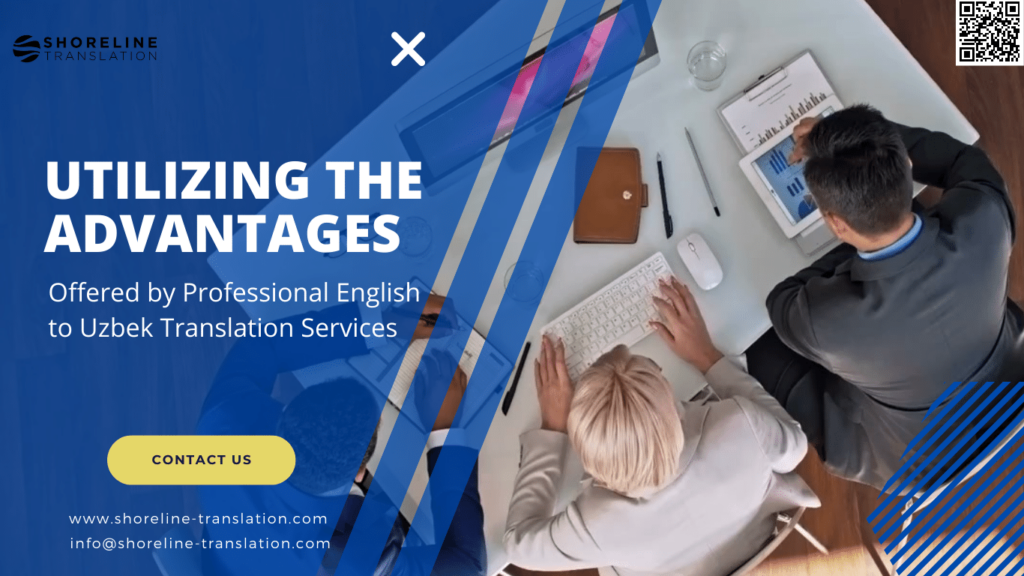Table of Contents
ToggleHow Cultural Nuances Affect UAE Arabic to English Translation in Legal Contexts
In an increasingly globalized world, the need for accurate and culturally sensitive translation is more vital than ever—especially in legal contexts. The United Arab Emirates (UAE), with its unique blend of traditional Arabic culture and modern legal frameworks, presents a particularly complex challenge when it comes to translating legal documents from UAE Arabic to English.
Misinterpretation or lack of cultural awareness in such translations can lead to serious legal consequences, from contract disputes to regulatory non-compliance. This article explores how cultural nuances influence the process of UAE Arabic to English translation in legal contexts, and why working with a certified translation company like Shoreline is essential for accuracy, compliance, and peace of mind.
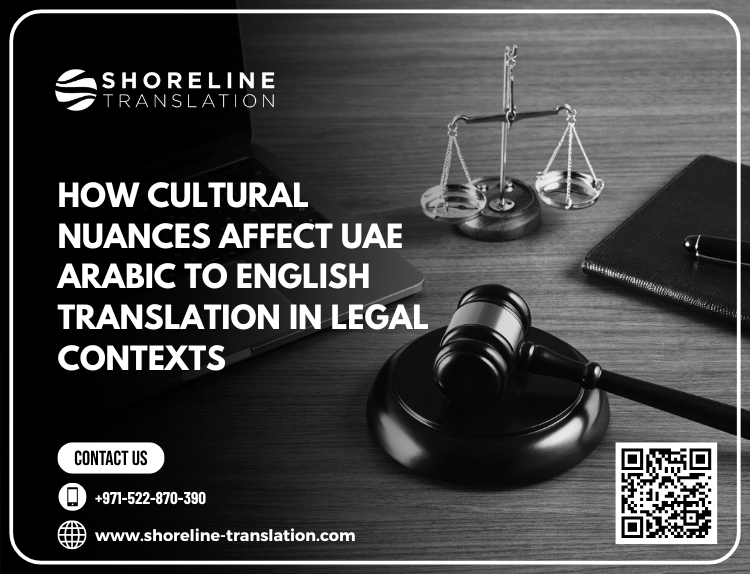
Understanding the Complexity of UAE Arabic
The UAE is a melting pot of dialects and languages. While Modern Standard Arabic (MSA) is used in formal communication, legal documents, and media, the spoken dialect in the UAE—Emirati Arabic—differs significantly from MSA and other regional dialects. These differences can impact how certain legal terms or phrases are interpreted when translating from UAE Arabic to English.
Arabic, especially in the UAE, is deeply intertwined with Islamic principles, tribal customs, and societal norms. Legal documents often contain references to Sharia law, honor codes, and family structures that may not have direct equivalents in English. This makes it crucial for translators to not only be bilingual but also bicultural.
Read more about: Why Corporates in Dubai Rely on Certified English to UAE Arabic Translators for MOUs
Why Legal Translation Requires Specialized Expertise
Legal translation is a highly specialized field that demands more than just linguistic knowledge. It requires:
- A deep understanding of both source and target legal systems
- Familiarity with legal terminology in both languages
- Cultural sensitivity to ensure accurate interpretation of intent
A simple mistranslation can alter the meaning of a contract clause or legal stipulation, potentially leading to litigation or financial loss.
Common Challenges in UAE Arabic to English Legal Translation
- Terminology Gaps: Some Arabic legal terms, especially those rooted in Islamic jurisprudence, have no direct English equivalent.
- Syntax and Structure: Arabic legal writing often uses lengthy, complex sentences, while English legal writing tends to be more concise.
- Cultural Assumptions: Concepts like “Wasta” (social leverage) or “Diya” (blood money) may be unfamiliar to English-speaking audiences but are critical in UAE legal contexts.
Read more about: How a Voice Translator Arabic to English Enhances Customer Support in Multilingual Call Centers
The Role of Cultural Nuances in Translation
Idiomatic Expressions and Legal Implications
Idioms and culturally specific phrases can be especially problematic. For example, a phrase like “على العين والرأس” (literally “on the eye and head”) is a common expression of respect in Arabic but would be meaningless or confusing in English if translated literally.
Honorifics and Formality
Arabic legal documents often include honorifics and formal expressions that reflect social hierarchy and respect. These elements, while culturally significant, may be omitted or misinterpreted in English if not handled carefully.
Religious References
Many legal documents in the UAE are influenced by Islamic law. Terms like “Shariah-compliant” or references to Quranic verses require not just translation but contextualization to ensure the target audience understands their legal weight.
Shoreline: Bridging Languages, Cultures, and Legal Systems
Shoreline is a leading certified translation company specializing in UAE Arabic to English legal translation. With a team of native-speaking linguists, legal experts, and cultural consultants, Shoreline ensures that every document is translated with precision, cultural sensitivity, and legal accuracy.
Key Features of Shoreline’s Services:
- Certified translations accepted by UAE courts and government bodies
- Expertise in translating contracts, court documents, patents, and more
- Fast turnaround times without compromising quality
- Confidentiality and data security guaranteed
Whether you need to translate English to Arabic UAE or vice versa, Shoreline is your trusted partner for professional translation services.
Cultural Competency in Translation: A Business Imperative
For Multinational Corporations
Companies entering the UAE market must ensure that their legal documents—such as contracts, compliance policies, and employment agreements—are accurately translated and culturally adapted. A misstep in translation could lead to regulatory issues or damage to reputation.
For Legal Professionals
Lawyers and legal firms working across jurisdictions rely on precise translations to build cases, draft contracts, and interpret laws. Inaccurate translation can compromise legal strategy and client trust.
For Individuals
From immigration papers to marriage certificates, individuals often require certified translations for legal purposes. Choosing a provider like Shoreline ensures that these documents meet the standards of UAE authorities and foreign institutions alike.
Specialized Considerations in UAE Arabic to English Translation for Corporate Compliance
For businesses operating in or expanding to the UAE, ensuring that all legal and compliance documents are accurately translated from UAE Arabic to English is not just a formality—it’s a strategic necessity. Misinterpretation of legal obligations due to poor translation can lead to regulatory penalties or reputational damage. Here’s how specialized translation supports corporate compliance:
Regulatory Alignment Across Jurisdictions
Translating compliance documents from English to UAE Arabic ensures that local employees and stakeholders fully understand corporate policies.
Likewise, translating internal audits, codes of conduct, and due diligence reports from UAE Arabic to English helps multinational headquarters maintain oversight and legal alignment.
Risk Mitigation in Cross-Border Transactions
Accurate translation of merger agreements, shareholder contracts, and NDAs reduces the risk of legal disputes.
Shoreline’s certified translators ensure that every clause is interpreted with precision, maintaining the legal enforceability of documents in both jurisdictions.
Localization of Corporate Governance Policies
Cultural adaptation of governance frameworks ensures that policies are not only linguistically accurate but also culturally appropriate, enhancing employee engagement and regulatory acceptance.
Best Practices for UAE Arabic to English Legal Translation
To ensure high-quality legal translation, consider the following best practices:
✅ Always use certified translators with legal expertise
✅ Ensure translators are familiar with both UAE and international legal systems
✅ Use a translation company that offers quality assurance and proofreading
✅ Request culturally contextualized translations, not just literal ones
✅ Choose a provider like Shoreline with a proven track record
The Shoreline Advantage: Where Precision Meets Cultural Insight
When it comes to legal translation, there’s no room for error. At Shoreline, we combine linguistic excellence with legal acumen and cultural awareness to deliver translations that are not only accurate but also meaningful within the UAE context.
Whether you’re a multinational firm, a legal practitioner, or an individual, Shoreline is your go-to partner for English to UAE Arabic and UAE Arabic to English legal translation services.
📩 Contact us today to get a free quote and experience the Shoreline difference.
Frequently Asked Questions (FAQs)
1. What makes UAE Arabic different from other Arabic dialects?
UAE Arabic, or Emirati Arabic, includes unique vocabulary, pronunciation, and expressions influenced by Bedouin culture and Islamic traditions. These differences make it essential to use translators familiar with the local dialect when translating legal documents.
2. Why is cultural understanding important in legal translation?
Legal language is often embedded with cultural meanings, especially in the UAE where Islamic law and tribal customs play a role. A translator must understand these nuances to ensure the translated document conveys the correct legal intent.
3. Can I use Google Translate for legal documents?
No. Automated tools like Google Translate are not reliable for legal translation, especially in culturally complex contexts like the UAE. They lack the ability to interpret legal terminology and cultural references accurately.
4. Are Shoreline’s translations accepted by UAE courts?
Yes. Shoreline provides certified translations that are recognized by UAE courts, embassies, and government institutions. Their team includes certified legal translators who ensure compliance with local regulations.
5. How long does it take to translate a legal document?
Turnaround time depends on the length and complexity of the document. However, Shoreline offers expedited services without compromising quality. Most standard legal documents can be translated within 24 to 72 hours.
Conclusion
Translating legal documents from UAE Arabic to English is not a task to be taken lightly. It requires a deep understanding of language, law, and culture. Misinterpretations can lead to serious legal and financial consequences.
That’s why working with a certified translation company like Shoreline is not just a smart choice—it’s a necessary one. With their unparalleled expertise in legal translation, cultural nuance, and linguistic precision, Shoreline ensures that your documents are not only translated but truly understood.
Ready to translate with confidence? Get Quote Request Today and take the first step toward accurate, culturally aware, and legally compliant translation services.


